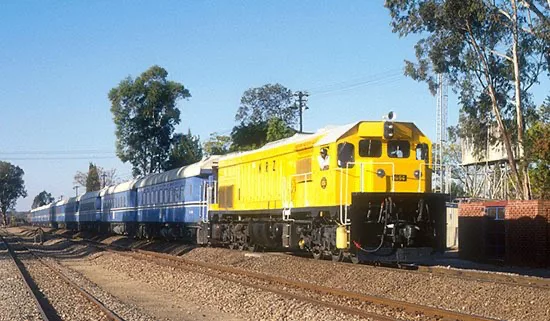|
Getting your Trinity Audio player ready...
|
Writes Engineer Jacob Kudzayi Mutisi
As Zimbabweans, do we pause to look inward and realize that some of the solutions we desperately seek already lie within our own institutions? The National Railways of Zimbabwe (NRZ) stands as a textbook example of how one institution, once powerful and respected has been allowed to decay, yet still holds enough latent potential to fund not only its own pension obligations but to contribute meaningfully to the national pension framework.
As a former investment analyst and investment banker trained under the stewardship of our very own Minister of Finance, Professor Mthuli Ncube, and the late former Governor of the Reserve Bank of Zimbabwe, Dr. Kombo Moyana, I understand what it means to extract value from institutional assets. What we need is not new foreign loans, but new thinking.
For decades, NRZ was the backbone of regional logistics, the pride of Southern Africa. It was not just a railway company it was a titan of property ownership. NRZ owned real estate across Zimbabwe, throughout Southern Africa, and even in the United Kingdom. These assets were not just for show. They actively funded what was, at the time, one of the most robust and well-capitalized pension funds in the country. NRZ pensioners lived comfortably, often better than many civil servants in the world, yes in the whole world.
The properties generated stable rental incomes. In urban centres like Bulawayo and Harare, NRZ had residential flats, warehouses, offices, and even industrial yards. Abroad, its holdings in the UK provided hard currency revenue. Yet today, these once lucrative assets lie idle, dilapidated, or worse disputed, mismanaged, or illegally occupied.
Why should NRZ pensioners beg for crumbs when the company they built has so many hidden treasures? The principle of institutional self-funding is simple, institutions must leverage their existing assets to create income-generating investments that sustain their operations and obligations. This is not new. It is standard practice globally.
Unfortunately, in Zimbabwe, institutions have become lazy or lack the governance required to actualize this. When institutions need money, they look outward to donor aid, government bailouts, or worse, endless borrowing. Yet they sit on land banks, property portfolios, intellectual property, and goodwill built over decades.
NRZ, for instance, still owns prime land in every city where the railway passes. Why not establish a property development arm and enter into strategic Build-Operate-Transfer (BOT) agreements with private developers? Why not re-title, modernise and lease out its real estate through a Real Estate Investment Trust (REIT) on the Zimbabwe Stock Exchange (ZSE)? Such models would generate consistent, predictable income in local and foreign currency.
Zimbabwe is not short of capital—it is short of trust. Pension funds, insurance firms, and private equity funds are awash with investable cash but lack credible partners and bankable projects. NRZ should not only be seeking funding but also offering investment vehicles itself.
With proper governance and credible financial reporting, NRZ can issue infrastructure bonds backed by rental income or freight earnings. It can co-invest with pension funds, including NSSA, to revitalize its assets in exchange for guaranteed returns. Institutions must start approaching our own institutions. Let NRZ go to the Infrastructure Development Bank of Zimbabwe (IDBZ), to AFC Holdings, to Old Mutual, and to CBZ. We must put our own savings to work.
Moreover, NRZ must monetize its right-of-way. The rail corridors passing through cities and rural hubs are potential fibre optic highways. Telecom companies would pay a premium to run fibre through NRZ land. Why has not this been monetized?
All these strategies are useless without one thing, good governance. Without proper title deeds, NRZ cannot unlock value from its properties. Without audited financials, it cannot issue bonds or attract capital. Without a competent and independent board, it cannot regain investor confidence.
This is where the government must step in not to fund NRZ, but to reform it. Ring-fence the pension fund, establish independent trustees, and audit all NRZ assets. Freeze any sale of land or property until a forensic valuation is conducted. Then and only then can NRZ be placed on a path toward funding itself and its retirees.
Our pensioners, particularly those who served in key institutions like NRZ, deserve dignity. These are men and women who kept the wheels of commerce turning during the most difficult years. It is unconscionable that they now live in destitution while the institution they built sits on idle riches.
What is needed is political will, technical expertise, and a new mindset. We must stop looking to donors and start looking to our own resources. If NRZ is revived as a commercial entity and its properties are activated, it will not only fund its pensioners it will become a model for institutional self-sufficiency.
The National Railways of Zimbabwe can fund its pensioners and others. It has done it before, and it can do it again. The properties are still there, the corridors still exist and the goodwill, though dented, can be rebuilt. The challenge is not economic it is administrative and strategic. With the right leadership and partnerships, NRZ can rise again and in doing so, restore the dignity of Zimbabwe’s pensioners.






